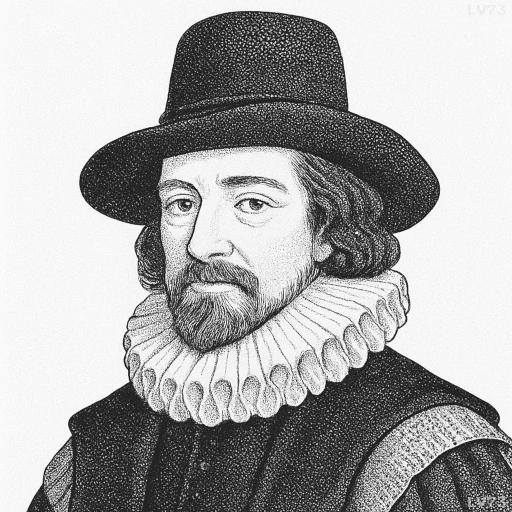“We are much beholden to Machiavel and others, that write what men do, and not what they ought to do.”

- January 22, 1561 – April 9, 1626
- Born in England
- Philosopher, theologian, jurist, politician, aristocrat
table of contents
Quote
“We are much beholden to Machiavel and others, that write what men do, and not what they ought to do.”
Explanation
In this quote, Francis Bacon acknowledges the value of writers, particularly Niccolò Machiavelli, who focus on the realities of human behavior rather than the ideals of how people should behave. Bacon suggests that by studying what people actually do, rather than what they ought to do, one can gain a more accurate and practical understanding of human nature and the workings of society. This approach offers insight into the flaws and complexities of human actions, revealing a more honest portrayal of politics, morality, and power.
Machiavelli, often seen as a realist in contrast to the idealists of his time, wrote The Prince, a work that focused on the pragmatic and often ruthless methods by which rulers maintain power. Bacon, who was a philosopher and statesman, appreciated this pragmatic perspective, especially in his own political life. While many thinkers of his era emphasized moral principles and idealism, Bacon valued the real-world application of political strategy and human behavior as a way to better navigate the complexities of governance and society. His acknowledgment of Machiavelli highlights a shift toward pragmatism in understanding human affairs during the Renaissance.
In modern times, this quote continues to resonate, especially in fields like political science and psychology, where scholars seek to understand not just ideal behaviors, but the true motivations behind human actions. For example, contemporary political analysts often study the realpolitik strategies used by leaders and governments, much like Machiavelli’s observations of power. By focusing on what people actually do, rather than idealistic notions, we are better equipped to understand the challenges and contradictions inherent in human nature and societal structures. Bacon’s perspective thus remains relevant in guiding not just political theory, but also everyday decision-making in a complex world.
Would you like to share your impressions or related stories about this quote in the comments section?

